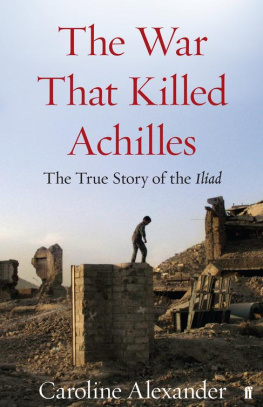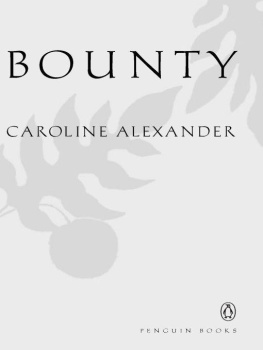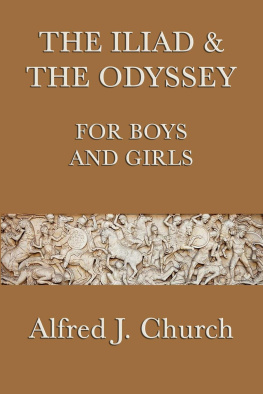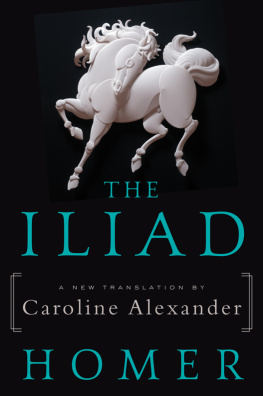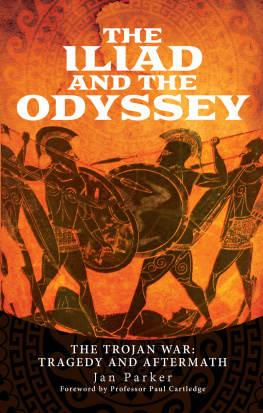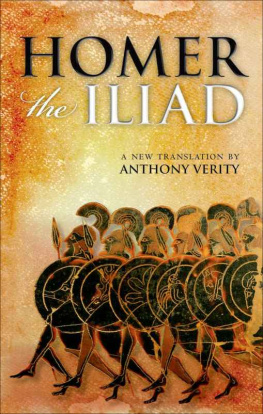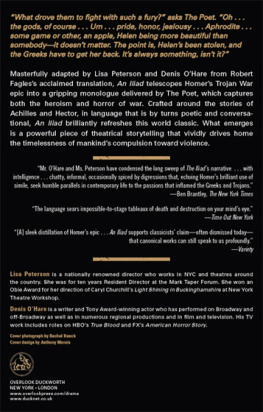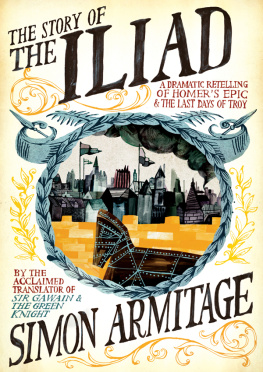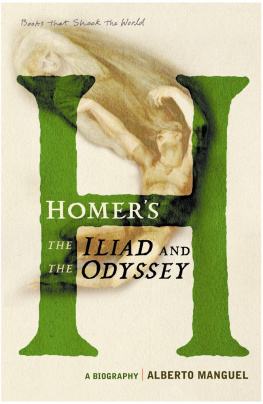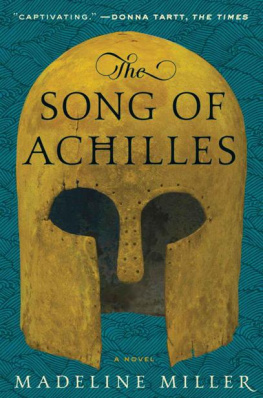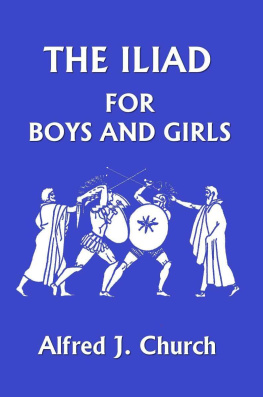The Iliad is generally believed to have been composed around 750 to 700 B.C . and has been in circulation ever since. This enduring, seemingly ineradicable fact of war is, in the Iliads wise and sweeping panorama, as intrinsic and tragic a component of the human condition as our very mortality.
Today, headlines from across the world keep Homer close by. The dragging of the bodies of U.S. Rangers behind their killers jeeps through the streets of Mogadishu evoked the terrible fate of the Trojan hero Hektor. A young American widow was reported as saying that she had tried to close the door against the soldier who appeared at her home in dress greens, believing that if she could keep him from speaking his news of her husband in Iraq, she could keep his news at baya small domestic scene that conjured the heartbreaking words of Hektors widow, Andromache: May what I say come never close to my ear; yet dreadfully I fear The Iliads evocation of wars devastation, then, is as resonant todayperhaps especially todayas it was in Homers Dark Age. Now, as at any time, Homers masterpiece is an epic for our time.
The classical age of ancient Greece knew the Iliad well, and the events surrounding the Trojan War furnished subjects for the great tragedians. Plato quoted and criticized Homer; Aristotle commented on him; Aristotles most famous pupil, Alexander the Great, is alleged to have slept with a copy of the Iliad annotated by Aristotle under his pillow. More tellingly, it is said that when the conqueror of the known world himself arrived at what remained of Troy, he lamented the fact that unlike the hero Achilles, he, Alexander, had no Homer to glorify his deeds.
Knowledge of Homer was brought to Rome in the third century B.C . by one Livius Andronicus, who composed Latin versions or imitations (as opposed to faithful translations) of the Odyssey, Homers sequel to the Iliad, as well as of the works of the Athenian playwrights. Perhaps more important, he established a curriculum of study of the Greek language and letters, of which Homers epic poems took pride of place. The centrality of Homers epics to the education of the Roman elite was never displaced, and indeed, the works of Homer formed the foundation of Greek studies in the schools of the empire. Young Octavian, the future emperor Augustus, is reported to have quoted the Iliad following the death of his uncle Caesar: I must die soon, then; since I was not to stand by my companion / when he was killed. Horace and Pliny knew Homer, Cicero criticized him, while Virgils epic imitation borders at times on plagiarism.
When the Roman Empire split in the sixth century A.D ., knowledge of Greek, which flourished in Byzantium, or the Eastern Empire, all but vanished in the West. The Iliad itself was forgotten, and in its stead stories about the war at Troy flourished, which, along with romantic sagas about Alexander the Great, formed the most popular classical material of the Middle Ages. The primary sources for these post-Homeric renderings of the matter of Troy, as the body of romance came to be called, were the Latin prose works of Dictys of Crete and Dares of Phrygia, dated to the third and fifth or sixth centuries A.D ., respectivelyboth of whom were fancifully believed to have been eyewitnesses to the Great War at Troy. In these Latin renderings, Achilles, the complex hero of Homers
England, as late as the Elizabethan age, was largely Greekless, and the first translation of a substantial portion of the Iliad (ten books) into the English language was made by way of a French text and published in 1581 by Arthur Hall, a member of Parliament until he suffered disgrace for, among other offenses, sundry lewd speeches and debt. His translation flirts with doggerel:
And often shall the passers-by say, Look who yonder is,
The wife of valiant Hector lo! Who in the field with his
Such fame and great renown did get, when Grecians compassed round
The great and mighty town of Troy and tore it to the ground.
Then, between 1598 and 1611, George Chapmans landmark translation of the Iliad appeared, made from Greek and other texts (and Latin translations), and was followed in five years by his translation of the Odyssey. It was the latter that, two hundred years later, Keats, who did not know Greek, read and commemorated unforgettably in his sonnet On First Looking into Chapmans Homer:
Much have I travelled in the realms of gold,
And many goodly states and kingdoms seen;
Round many western islands have I been
Which bards in fealty to Apollo hold.
Oft of one wide expanse had I been told
That deep-browed Homer ruled as his demesne;
Yet did I never breathe its pure serene
Till I heard Chapman speak out loud and bold:
Then felt I like some watcher of the skies
When a new planet swims into his ken;
Or like stout Cortez when with eagle eyes
He stared at the Pacificand all his men
Looked at each other with a wild surmise
Silent, upon a peak in Darien.
The ice had been broken, and there is since the late sixteenth century hardly a generation in the English-speaking world which has not produced its Homers.
But as knowledge of Homer was disseminated by English translations, as well as by knowledge of the original Greek, the perception of the Iliads central hero, Achilles, shifted, and so accordingly did the perceived meaning of the epic. Not only had Achilles been tarnished by the medieval lays, but from the time of Augustan England of the eighteenth century, he was further diminished by the ascendancy of another ancient epic: Virgils Aeneid, which related the deeds and fate of the Roman hero pius AeneasAeneas the pious, the virtuous, dutiful, in thrall to the imperial destiny of his country. In contrast to this paragon of fascism, Achilles, who asserts his character in the Iliads opening action by publicly challenging his commander in chiefs competence and indeed the very purpose of the war, was deemed a highly undesirable heroic model.
Thus, while the Iliads poetry and tragic vision were much extolled, the epics blunter message tended to be overlooked. Centuries earlier, tragedians and historians of the classical era had matter-of-factly understood the war at Troy to have been a catastrophe: For it came about that, on account of the length of the campaign, the Greeks of that time, and the barbarians as well, lost both what they had at home and what But now, later ages marshaled the Iliads heroic battles and heroes high words to instruct the nations young manhood on the desirability of dying well for their country. The dangerous example of Achilles contemptuous defiance of his inept commanding officer was defused by a tired witticismthat shining Achilles had been sulking in his tent.
H omeric scholarship goes back to the dawn of literary scholarship, to the work of Theogenes of Rhegium, around 525 B.C ., and in most Westernand some non-Westernuniversities continues to this day. Thousands of books, articles, and lectures, beyond tabulation, have been composed on this epic, and an incalculable mass of scholarship has examined and analyzed the Iliad from almost every conceivable angle of approach.
This book is not about many of the things that have occupied this scholarship, although inevitably it will touch on the same themes. This book is not an examination of the transmission of the Homeric text or of what Homer has meant to every passing age. It is not an analysis of the linguistic background of the epic, and it is not about the oral tradition behind the poem; it is not about formulaic expressions or whether Homer should refer to an individual or a tradition. It is not about Bronze Age Greece nor the historicity of the Trojan War. This book is about what the

